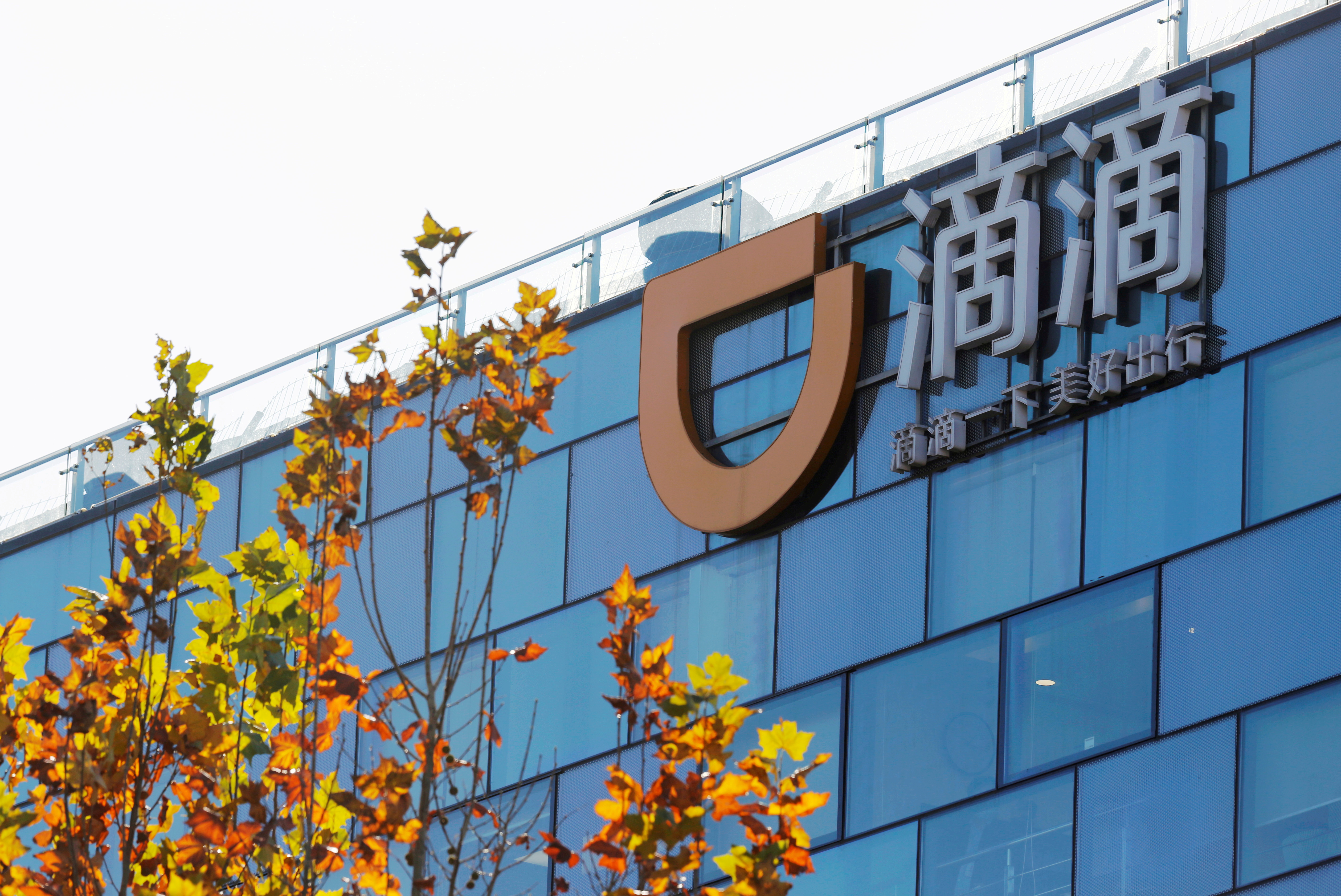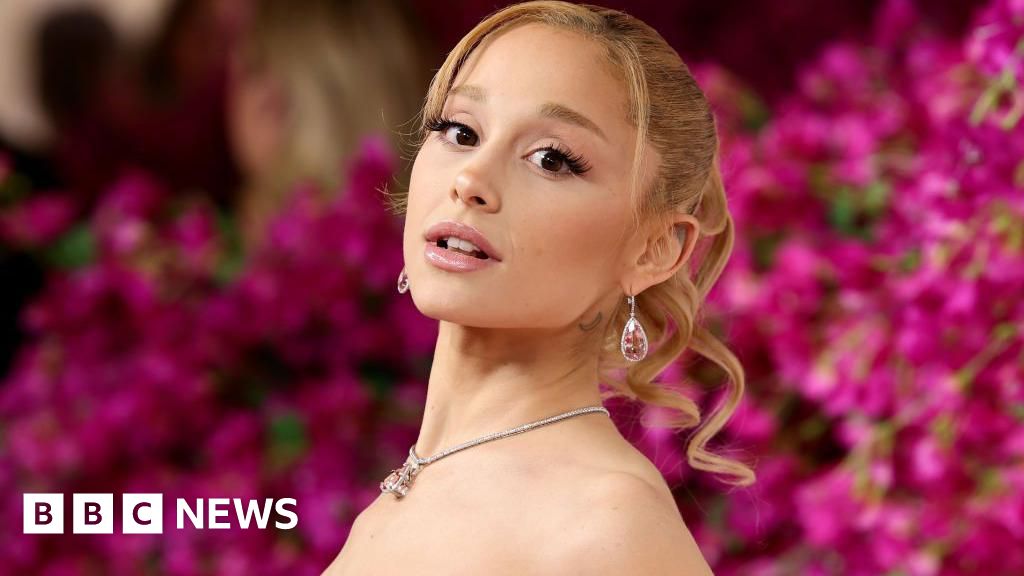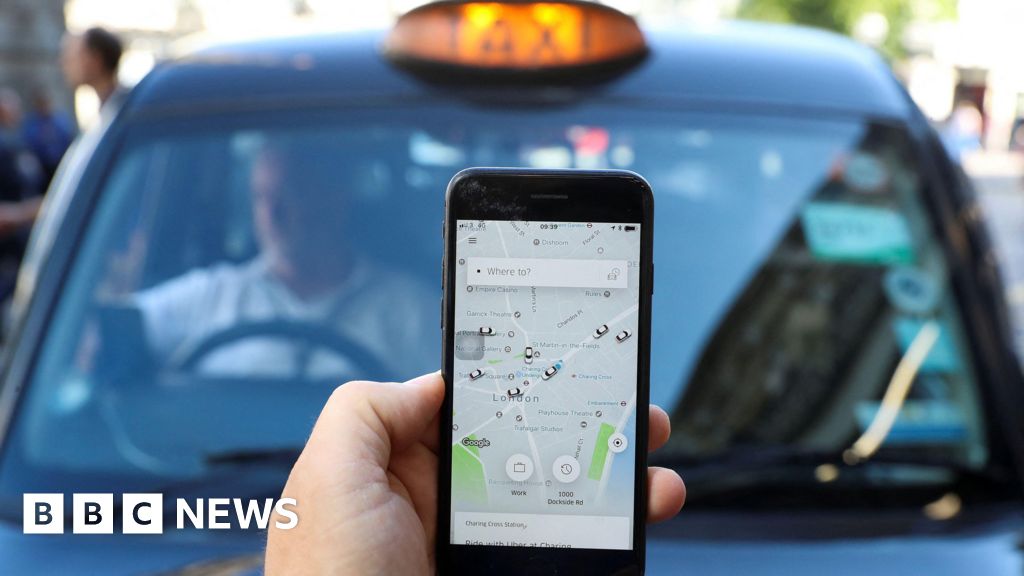A Didi logo is seen at the headquarters of Didi Chuxing in Beijing, China November 20, 2020. REUTERS/Florence Lo/File Photo
June 24 (Reuters) – DiDi Global Inc , China’s largest ride-hailing company, is aiming for a valuation of more than $60 billion in its New York Stock Exchange debut, setting it up for what is likely to be the biggest U.S. initial public offering (IPO) this year.
It set a price range of between $13 and $14 per American Depositary Share (ADS) and said it would offer 288 million such shares in its IPO. At the upper end of the price range, DiDi expects to raise a little more than $4 billion.
Four ADSs represent one Class A ordinary share, it said in a regulatory filing on Thursday that was registered under its formal name Xiaoju Kuaizhi Inc.
The IPO will be the one of the biggest share sales by any Chinese company in the United States since Alibaba raised $25 billion in 2014.
However, the terms of the offering suggest a conservative approach from DiDi, which had at one point been in talks to raise as much as $10 billion at a valuation of nearly $100 billion. read more
The New York listing plan comes amid a sweeping regulatory crackdown on China’s biggest tech “platform” companies, including Alibaba and Tencent.
Earlier this month, Reuters reported that China’s market regulator has begun an antitrust probe into DiDi. read more
The company is backed by Asia’s largest technology investment firms including SoftBank Group Corp (9984.T), Alibaba Group Holdings (9988.HK) and Tencent Holdings (0700.HK).
Before settling for a New York float, DiDi had considered Hong Kong as a potential listing venue for a multi-billion dollar IPO in 2021.
Excluding China, DiDi, the world’s largest mobility-technology platform, operates in 15 countries and has more than 493 million annual active users globally.
It counts as its core business a mobile app used to hail taxis, privately owned cars, car-pool options and even buses in some cities.
It became the top online ride-hailing business in China after market-share battles with Alibaba-backed Kuaidi and Silicon Valley-based Uber’s China unit, both of which were merged with DiDi when investors sought profit from the money-losing businesses.
In 2016, Uber Technologies Inc (UBER.N) sold its operation to DiDi for a 17.5% stake in the Chinese firm, which also made a $1 billion investment in Uber. The U.S. firm now owns 12.8% stake in DiDi, according to the IPO filings.
In addition to ride-sharing, DiDi operates different businesses around mobility, including electric vehicle charging networks, fleet management, car making and autonomous driving.
Goldman Sachs (Asia), Morgan Stanley and J.P. Morgan are the lead underwriters.
DiDi added more than a dozen new ones on Thursday, including BofA Securities, Barclays, China Renaissance, Citigroup, HSBC and UBS Investment Bank.
Reporting by Niket Nishant in Bengaluru;
Editing by Vinay Dwivedi
Our Standards: The Thomson Reuters Trust Principles.





